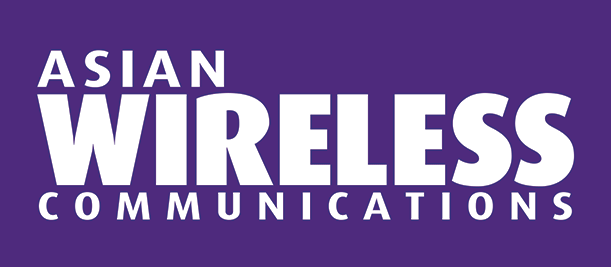13 July 2022

Martin Jarrold, chief of international programme development, GVF
GVF, through its training division – SatProf, Inc. – has for 21 years been engaged in the provision of satellite earth station/terminal installer training and certification. This year, GVF’s Silver Anniversary, we have added to our training/education portfolio, taking an additional direction with the satellite industry’s first comprehensive online non-technical education programme and curriculum to offer individual courses, full modules and a “Space Business Qualified” (SBQ) certification path.
With the SBQ, GVF is once again working with SatProf. Our other partner is Space & Satellite Professionals International (SSPI). The three satellite industry trade groups have a combined 80-years of experience in space industry education and in launching this new online learning programme we will satisfy the need of new and established businesses and employees in the commercial space industry to learn about all aspects of the business, enabling industry professionals to become “space business qualified.”
The 21-years of GVF’s work in installer training and certification – having the objective of building a global force of qualified VSAT installation technicians available in local areas to support expansion of VSAT networks everywhere – resulted from the industry’s increasing recognition that training is a first line of defence against satellite radio frequency interference (RFI).
The industry has long agreed that improved training reduces uplink errors and improves equipment maintenance and installation practices. The World Broadcasting Unions-International Satellite Operations Group (WBU-ISOG) – since 2015 the World Broadcasting Unions-International Media Connectivity Group (WBU-IMCG) – has formally adopted a resolution supporting industry initiatives for training. Today, GVF training has reached over 20,000 students globally, pursuing some 30+ courses across, for example, VSAT installation, marine terminal operation & installation, teleport & news gathering up-linking, mobile terminal operation, numerous general theory topics & equipment-specific training.
The space and satellite industry has grown far beyond the dreams of its pioneers and the handful of governments that initiated it. The commercial space industry is today a mature, fast-expanding, complex business. With a total size estimated at well over US$1 trillion dollars, it reaches deeply into dozens of vertical markets and other industry sectors. It is essential in the provisioning of communications, data and the digital transformation of much of the global economy and has become an invisible but indispensable part of everyday economic activity. Its growth is being fuelled by the financial community’s involvement as massive numbers of startups and new business models form within it. However, no industry course has offered a comprehensive learning experience to teach this, until now, and it was at the Satellite 2022 show in Washington DC on 21 March 2022 that the launch of SBQ was announced.
SBQ courses fill this gap, adding to the industry’s online training toolbox a body of non-technical education designed to improve the knowledge and performance of existing employees, increase the marketability of those seeking a job in the industry, and provide employers with an inexpensive way to both increase productivity and enhance employee retention in a hyper-competitive labour market.
The courses are taught through a mix of self-paced, interactive tutorials, videos, illustrations, and testing to validate understanding and reinforce learning, with fundamentals courses leading to more specialised courses in satellite communications, earth observation, spacecraft and launch. The programme will enable learners to focus on specific topics or to work through the course series to achieve their choice of certifications. A Free “Welcome to the Business of Space” course is offered as an incentive for individuals and companies to examine the courses being offered.
A full description of the SBQ courses can be found at www.SpaceBQ.org. You can also email info@SpaceBQ.org for information, and stay informed on current and future developments by joining the growing community on LinkedIn and Twitter and following #SpaceBQ.
After more than two years prevented from undertaking international travel I will shortly be resuming my travels to satellite industry events. First on my agenda is an event which takes place in Dubai in the UAE, but which additionally addresses much of Africa and south Asia. At CABSAT 2022 GVF presented and moderated three Summit sessions, which were held on 17 & 18 May:
‘Stakes and Solutions in Responsibly Managing Space’
Sustainability is a global priority across all industries and organisations, and should extend beyond our planet too. This panel addressed multiple facets of sustainability with discussion points covering why we should care about our impact on space, whose responsibility it is to keep space clean, the risks of not responsibly managing our impact, and the tracking of orbital objects, including other solutions and best practices, to help us responsibly manage our use of space.
‘Disruptive Evolution in the Satellite Ground Segment’
Satellite’s ground segment, antennas in particular, is undergoing game-changing innovation. With the rapid growth of satellite networks in non-geostationary satellite orbits (NGSOs), and applications including machine-to-machine and people communications this part of the satellite industry is evolving to deliver, the panel addressed developments in the use of metamaterials, in power efficiency and in interference prevention, examine how satellite will reach full potential in delivering services across business, government, and consumer, together with discussing the benefits and challenges to adoption of flat panel alternatives to traditional parabolic antennas.
‘Driving a New Space Innovation Paradigm with Artificial Intelligence and Machine Learning’
AI and ML are being increasingly applied to foster innovation in the satellite and wider space industries. Impacting multiple areas of space operations, the panel explored how the satellite industry is leveraging AI and ML to revolutionise business. The panel will touch upon areas including optimisation in satellite autonomous control, in-orbit servicing/refuelling, and spacecraft decommissioning, data-gathering, analytics and management, and advances in software-defined networks and the design of new satellite terminals.






